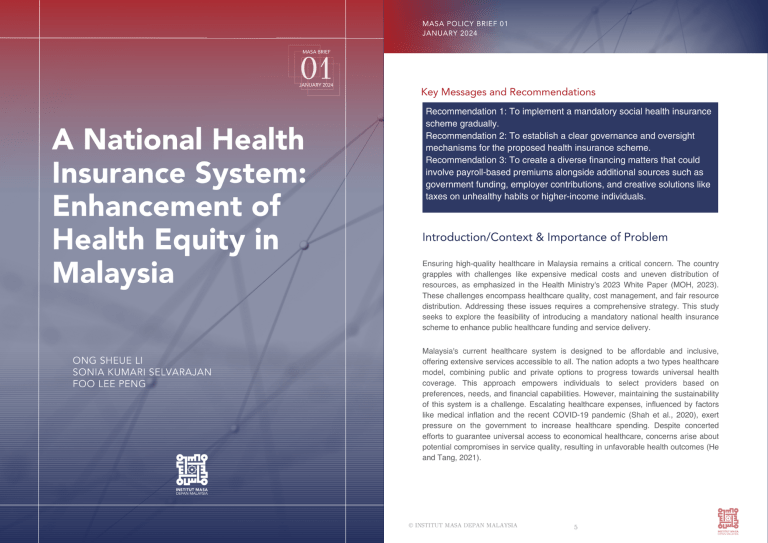Malaysia faces several challenges within its healthcare system, notably high costs and uneven distribution of resources. Despite ongoing efforts, public healthcare grapples with issues like overcrowding and unequal access. Discussions surrounding mandatory national health insurance have brought attention to potential benefits and concerns. Of note, affordability remains a key issue as the majority of Malaysians lack adequate private health insurance coverage.
This study explores the feasibility of introducing a mandatory national health insurance scheme, aimed at improving both the funding and delivery of public healthcare services. The study employs focus group discussions to assess the viability of such an insurance program. Additionally, a comparative analysis with Taiwan’s case study is conducted to inform policy recommendations.
The focus group discussions underscore the importance of financial stability for a successful national health insurance scheme, particularly in navigating the transition from the current two types of system. The discussions also propose innovative concepts, such as utilizing the Employee Provident Fund (EPF) for premium payments. Concerns arise over potential exacerbation of health inequalities due to premium calculations based on risk factors, prompting suggestions for specialized coverage tailored to high-risk occupations.
Drawing insights from Taiwan’s universal National Health Insurance (NHI) system, the study emphasizes equity, cost control, and quality assurance through strategies like pay-for-performance and subsidies. The recommendations for Malaysia include a gradual implementation approach, diversified financing options, targeted subsidies, emphasis on preventive care, strengthened primary healthcare, exploration of public-private partnerships, and the establishment of robust monitoring mechanisms.
By embracing these recommendations, Malaysia can bolster its healthcare system’s efficacy, equitable access, and financial sustainability. This approach would contribute to improved health outcomes and more accessible services for the entire population.
